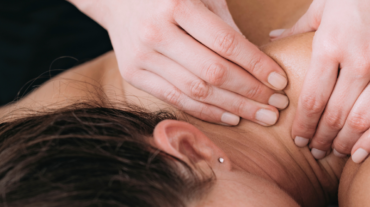Sleep apnea is a sleep disorder characterized by a reduction of, or pauses in your breathing during sleep. The three types of sleep apnea are central (CSA), obstructive OSA), and complex or mixed sleep apnea. In CSA, apnea (when breathing pauses or is reduced) occurs due to lack of respiratory effort (your brain does not send the signal to your muscles to take a breath); in OSA because of a physical blockage to airflow (e.g. deviated septum, palate and uvula, or the back of your tongue); and complex/mixed is a combination of both. Despite the type of sleep apnea you may suffer from, it is difficult to diagnose and people often go for years without knowing, simply becoming accustomed to the various symptoms. But the truth is that sleep apnea deprives your body of necessary oxygen, putting a strain on your heart and consequently the rest of your body.
Symptoms of sleep apnea include:
- snoring
- excessive daytime fatigue
- reduced reaction time
- vision problems
- difficulty concentrating
- memory loss
- moodiness
- depression
- insomnia
Conditions that can be caused or worsened by sleep apnea include:
- high blood pressure
- congestive heart failure
- stroke
- liver function impairment
Diagnosis of sleep apnea often involves a formal sleep study, which your doctor can arrange for you. Once diagnosed with sleep apnea, it will likely be recommended that you stop using alcohol, sleeping pills and other sedatives to help you sleep, as these can relax your throat muscles, allowing collapse and obstruction of air flow.
Other behavioral changes you can make to manage sleep apnea involve losing weight, quitting smoking, sleeping on your side instead of your back, reducing lighting and noise in the bedroom, and attempting physical and mental relaxation before going to bed. A mouthpiece for sleeping may also be recommended, as may a continuous positive airway pressure (CPAP) machine, but results depend on compliance with these devices.
Medications typically prescribed specifically for CSA include those to lower blood pH levels (thereby encouraging your brain to take a breath). In treating OSA with medication, your doctor may prescribe nasal steroid sprays, topical nasal decongestants, and various other drugs aimed at treating potential underlying causes (e.g. sinusitis). Be sure to discuss possible side effects with your doctor and/or pharmacist.
Surgery for OSA is an option when other methods fail, and the specific nature of the surgery will depend on the precise obstruction blocking your breathing. Surgery may involve anything from putting in an implant to shortening the length of your tongue.
Where surgical measures are not necessary, consider natural medicine to manage your sleep apnea. Visit our nutritional counsellor for a diet plan that can help, and try some acupuncture and TCM, as it is great for treating underlying conditions that can affect your sleep. Finally, massage therapy and yoga can assist you in relaxing and putting your body in the right state for healthy, replenishing sleep.
Contact us for a FREE consultation on how natural therapy can help you with your sleep apnea.
These links may also be helpful:







